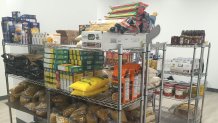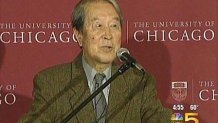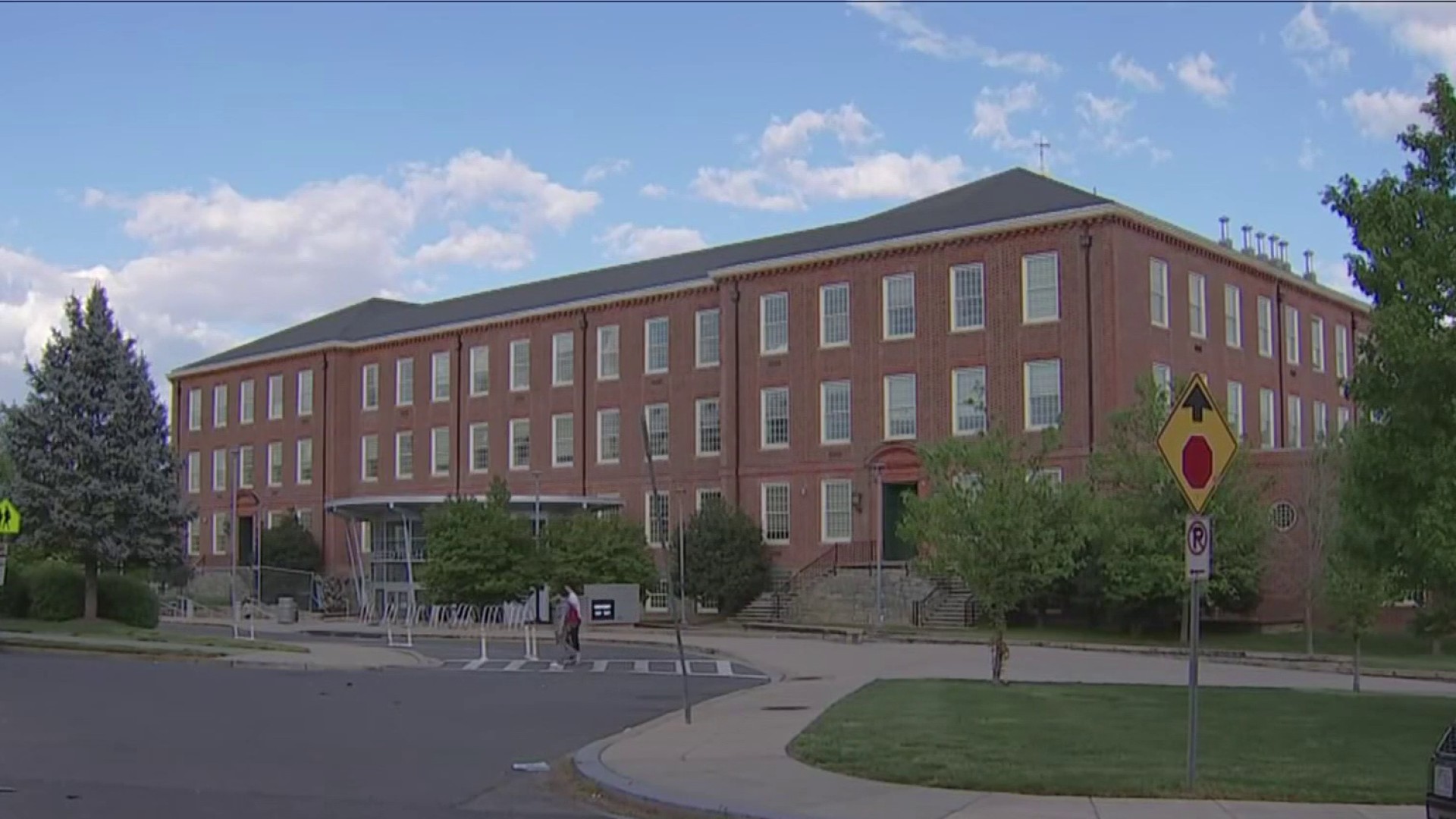A dean at George Washington University was shocked when he read an article this winter about college students having too little money to pay for both books and food.
Associate Dean of Students Tim Miller realized the problem likely existed on his own campus. He and his colleagues conducted two surveys at GW and the results were clear: Like other students across the country, students at GW were going hungry because they can't afford food.
"When you think about hunger, you think of a certain type of person, and not that it’s people who are in college and dealing with it," Miller said.
To help college students coping with food insecurity, on Oct. 1 GW officially opened a food pantry for students.
Inconspicuously called The Store, the food pantry is stocked with fresh produce and groceries purchased from the Capital Area Food Bank with donated funds. About 160 students already are using the food pantry, Miller said.

Students who use the food pantry, which is located off a quiet hallway, can expect discretion.
Local
Washington, D.C., Maryland and Virginia local news, events and information
"This can be an embarrassing thing for people sometimes," Miller said. "For us, this is all about being of service to those students… And if that's what they need to feel good about this, then we're going to provide them that. I don't need to know who they are."
All that is asked of students is their student identification number, to give them swipe access to the pantry, and their email address, to send them updates when there is new food. This information is collected via a Google form that leaves space for students to give feedback and list their food preferences.
If a student says they need the food, they can get it.
"We have faith if you say you need this, then you need it," Miller said.
The GW Class Council, which is the pantry's student organization partner, helps by recruiting, managing and training volunteers. In order for students to use the pantry privately, volunteers only help with upkeep during designated times of day.
Multiple students who have used the pantry have left anonymous notes to express their gratitude.
"I just want to say thank you. I walked in and I felt terrified. I cried at how many options there are, and how much people must care to do this. Bless you all," one student wrote in a note.

A student who identified herself as a single mother also wrote to say thank you.
"You cannot imagine how much RELIEF this gift has brought me on so many levels. Yes we go to GW. Yes we sometimes can't afford food. Thank you for hearing our voice and caring," the note said.
Other universities in the D.C. area also have created food pantries for students.
George Mason University and University of Maryland, College Park also have food pantries in place. The University of Maryland pantry served 176 students and staff members last fall, the school's director of dining services said.
George Mason University's pantry is part of the College and University Food Bank Alliance (CUFBA), a national organization that helps colleges cope with poverty and hunger.
CUFBA just published the results of a survey they conducted of more than 3,700 college students in 12 states. More than 1 in 5 respondents reported "very low levels of food security that qualify them as hungry." The majority of students struggling to buy food had jobs and were receiving financial aid, the study found.
Giving students food can have an immediate academic effect, CUFBA director and co-founder Clare Cady said.
"If a student is that hungry, they can't study, they can't take a test, they can't be in class and concentrate, and participation is a part of their grade," she said.
Food insecurity is a symptom of a larger problem, Cady said.
"Financial aid has not grown in proportion to the cost of attendance of school," she said. "So, students are receiving aid and they're working, and yet they're still not being able to make ends meet."



